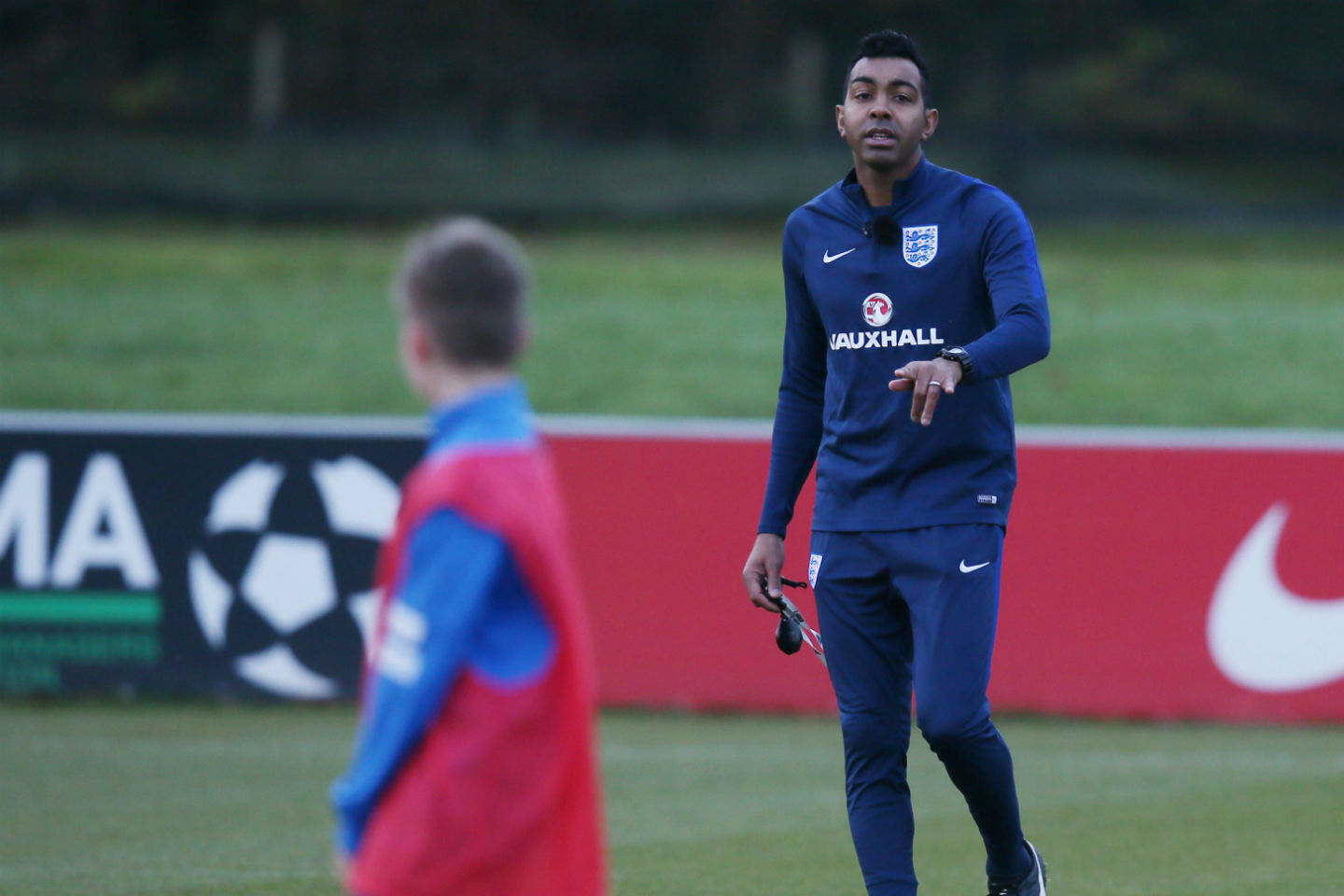England insight

How England U15s play out from the back
- Peter Glynn
- 06 December 2018
England Under-15s head coach, Kevin Betsy, tells Peter Glynn why building the attack shouldn’t be seen as a risk to winning games.
Some coaches believe playing out from the back is dangerous: an unnecessary risk which jeopardises winning football matches.
But not England U15 head coach, Kevin Betsy, who believes that building play from the goalkeeper will help prepare young English players to win more games at the highest level in the future.
“Helping players to be comfortable in the build-up phase is important for the long-term development of England players and teams,” explains Betsy, who joined the Three Lions set-up from Fulham’s academy in 2016.
“Goal-kicks are key moments where you can tempt the opposition into false hope. You’re sucking the opponent onto the ball with the aim of playing through them to create overloads higher up the pitch.
“We want our players to be comfortable and composed at receiving the ball under extreme pressure and be able to find solutions in any scenario."
Building the attack is a priority for young players joining the England U15 squad – the first of the Three Lions’ representative sides. It is a platform for all the in possession work which follows throughout the pathway.
“We look at three aspects of in possession play: building the attack, creating the attack and finishing the attack," adds Betsy.
"In the U15s year, we focus mainly on build-up particularly against a high press, which links into the playing principle of dominating possession and territory.
“If we’re missing players out of the game too early, too often, by playing long without thought and idea then that’s a detriment to their long-term development."
But the former Fulham, Bristol City, Wycombe and Barnsley player is keen to stress that build-up play is not restricted to playing short.
“Sometimes people are misunderstood when we talk about build-up that it always has to be short passes," he said.
“If we want to play the ball into our front three from goal-kicks or into the space with a longer quality pass for them to receive in a 1v1 and it’s on to do so, then we will take that.
“However, we do a lot of work with individuals and units to ensure we will be in positions to control the ball and not allow the ball to be a 50/50."
If you show disappointment or signs that you don’t believe in the player then you’ve lost them
With many teams in the international game retreating to a deep block when out of possession it can be a challenge to play into the final third accurately, explains the 39-year-old.
“We find in international football a lot of teams give us respect. Teams drop off to the half-way line into a deep block with eleven players behind the ball and it can be difficult to break down.
“We like our centre-backs to have the ability to step into midfield with the ball because if they don’t we won’t be able to make overloads higher up the pitch and open up teams who sit deep– like many teams at Euro 2016 experienced.”
Encouraging young players to play out from the back means mistakes are inevitable. How the coach reacts to such moments is crucial to the learning process, says Betsy.
“We will go through some pain playing this way as young players will make mistakes in the same way that top experienced international players do. We sometimes magnify the first mistake in our half too much - these are the key moments when we have to support and encourage our players.
"If you show disappointment or signs that you don’t believe in the player then you’ve lost them and the relationship between you and the player is difficult to repair. You’ll never get them to trust you as a coach or the principles you are teaching.
“However, if you work on solutions and support them, before, during and after and give them the confidence to help them then they will feel comfortable in the environment and grow very quickly. It can be highly rewarding for both players and coach.”


























